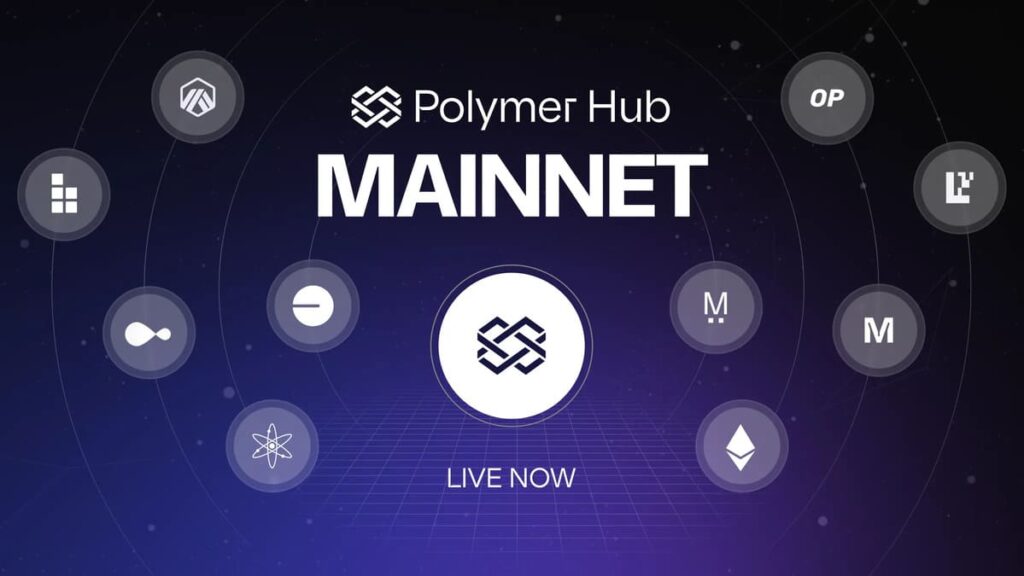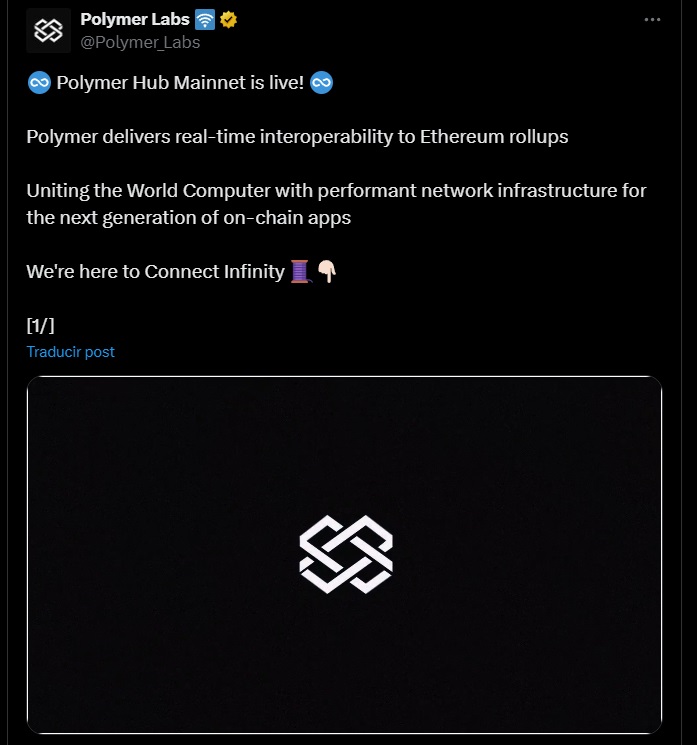TL;DR
- Polymer Hub, an innovative protocol, has been launched to improve real-time interoperability between rollups on the Ethereum network.
- Using the IBC protocol and sequencer pre-confirmations, it optimizes cross-chain communication, reducing latency and costs.
- The protocol includes re-org protection, ensuring the integrity of cross-chain transactions and the ability to automatically revert any deviations.
The launch of Polymer Hub has been confirmed, an innovative protocol designed to improve interoperability between rollups on the Ethereum network.
This protocol enables real-time communication between different rollup ecosystems, removing the connectivity barriers that have historically limited the scalability and efficiency of decentralized applications (dApps). The goal of Polymer Hub is to make cross-chain interoperability as fast, efficient, and affordable as block space itself, which will be crucial for the mass adoption of high-performance applications.
A New Interoperability Scheme
Rollup ecosystems have operated in isolation until now. Each one operated within its own closed environment, which created bottlenecks in interoperability. However, with the launch of Polymer Hub, rollups will now be able to coordinate and communicate with each other as quickly as they can generate blocks.
The protocol promises to improve latency, bandwidth, and cross-chain communication costs, which is vital for supporting high-speed, scalable applications, such as those needed in areas like e-commerce and ride-sharing.

How Polymer Hub Works
Polymer Hub uses the IBC (Inter-Blockchain Communication) protocol to enable secure communication between chains. This system reduces the application overhead by allowing arbitrary states to be proven across rollups more efficiently. It also uses sequencer pre-confirmations for real-time message delivery, ensuring that cross-chain communication latency remains at minimal levels, adapting to the block times of next-generation rollups.
The protocol also includes a re-org protection function, providing greater security by ensuring that cross-chain transactions are handled securely and can automatically revert if they deviate from Ethereum’s main chain history.
This advancement will be crucial for the evolution of the industry as Ethereum prepares to scale further with high-performance rollups. Polymer Hub has been supported by projects such as MegaETH, which highlights the potential of this protocol to enable the development of large-scale decentralized applications











